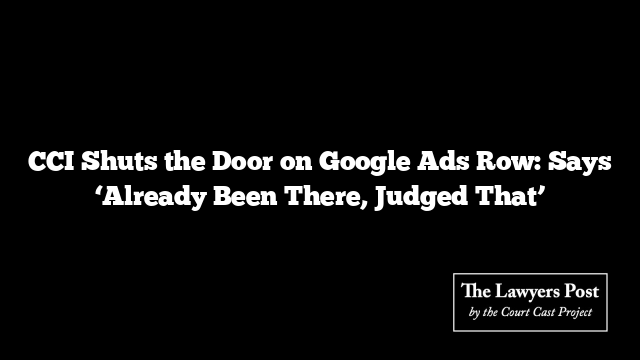The Alliance of Digital India Foundation (ADIF) took another swing at Google, accusing the tech titan of strong-arming advertisers through its Google Ads policies. But the Competition Commission of India (CCI) wasn’t having it. In a crisp, no-nonsense order, the Commission tossed the complaint, essentially telling ADIF: this isn’t new ground—it’s old turf already walked, debated, and ruled on.
The Grievances, Replayed
ADIF’s list of complaints read like a greatest hits album of advertiser frustrations:
- A blanket ban on third-party tech support ads, allegedly lacking any Indian legal basis.
- “Call Ads” restricted to mobile only, nudging advertisers towards Google’s preferred format.
- A murky, algorithmic ad-ranking system that ADIF said was more “black box” than transparent metric.
- Allowing competitors to bid on trademarked brand names, pushing companies to buy their own names just to be found.
In short, ADIF accused Google of stacking the deck—discriminating, dominating, and dancing around fair-play rules enshrined in the Competition Act.
Google’s Counter: We’re Not the Bad Guy Here
Google responded with its own narrative: the ad policies weren’t about power—they were about protection. The 2018 global crackdown on tech support ads? That came after waves of scams. The company said it tried verification programs but consumer safety came first. As for allowing rivals to bid on trademarks, Google claimed it was all in service of user choice—nothing nefarious, just competition working as intended.
Call Ads were designed to prevent fraud, and the “black box” ranking system? It’s not so black, according to Google—it factors in bid value, relevance, and quality score.
CCI’s Verdict: This Ship Has Sailed
The Commission didn’t even get into the weeds. It invoked Section 26(2A) of the Competition Act, a relatively new provision that says if the facts and issues have already been handled in a previous decision, there’s no need to dive in again.
In this case, the CCI leaned on past rulings—Matrimony.com and Vishal Gupta—which had already scrutinized Google’s ad practices. It held that the same core issues were being repackaged, and there was no significant change in circumstances to warrant a fresh probe.
Reopening the matter, the Commission said, would only drain time and public resources for no real gain.
Delhi High Court Mentioned, but Doesn’t Move the Needle
The CCI noted a previous Delhi High Court observation in the DRS Logistics case that consumers may end up viewing competitors when searching for trademarked terms. But even that didn’t tip the scales—especially since, the CCI emphasized, its rulings apply broadly (in rem), not person-by-person (in personam). No materially new facts? Then no new inquiry.
Final Word: Case Closed, Doors Locked
Citing the principle of res judicata—a legal firewall against endlessly re-litigating the same matters—the CCI shut the door on the complaint and directed that both parties be notified.
For ADIF, it’s back to the drawing board. For Google, one less battle in an ongoing war over digital dominance. And for the CCI, a firm reminder that déjà vu isn’t a reason to reopen a case.





